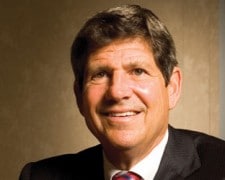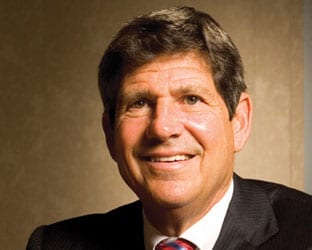 An FM chip in cell phones could dramatically help lower bandwidth use and is a priceless possession during an emergency, say proponents led by Emmis leader Jeff Smulyan. Opponents say it’s merely the ploy of an ailing industry to hang on to market share.
An FM chip in cell phones could dramatically help lower bandwidth use and is a priceless possession during an emergency, say proponents led by Emmis leader Jeff Smulyan. Opponents say it’s merely the ploy of an ailing industry to hang on to market share.
Smulyan argued before the House Communications Subcommittee that the reason consumers aren’t clamoring for FM service on their phones is that they largely don’t know anything about it. He said that phones including a chip have only recently started making it to store shelves. They do not benefit from any marketing effort, nor are salespeople able to discuss the feature at all.
He noted that having the option to listen to free radio on a phone is easier on the devices battery than is streaming audio from an internet source; it is free, not subject to a streaming fee; using radio helps consumers avoid hitting a streaming cap; and of course, it is often the only medium left standing and usable in times of emergency.
Representatives of the wireless and consumer electronics industries included CTIA’s Christopher Guttman-McCabe and CEA’s Gary Shapiro. They argued that there were some 59 phones with active FM chips available, but consumers simply choose not to buy them. They said the market should decide if the chips are activated or not, and so far, the market is saying no. They said if the answer changed to yes, we could all rest assured some manufacturer would be more than happy to make them available.
Shapiro at one point suggested that radio has lost 41% of its listeners, which is why it Smulyan was fighting so hard for the chips. Smulyan called that statistic ridiculous and noted that radio listening levels remain high.
When the question came up as to why radio isn’t promoting chips itself, Smulyan said it’s primarily because they have only recently started coming on the market – and before that happened, there was nothing to promote.
The tech association heads said differences in the amount of use cell phone FM gets in different countries is largely a cultural phenomenon, and the usage pattern in the US is simply a reflection of the tech-based internet-inventing US.
Smulyan said it has much more to do with the fact that a consumer listening to a radio station on their phone is a consumer who is not paying a streaming or subscription fee, and that’s why the techies were dampening enthusiasm for an FM presence on the devices.
At one point, it was argued that cell manufacturers might have to install special antennae into the phones to activate chips. Smulyan said that too was unlikely, that the same antenna each phone has to receive phone calls is perfectly adequate to receive FM radio.
Subcommittee Anna Eshoo (D-CA) agreed with CTIA and CEA that there did not seem to be any particular demand. However, two representatives: Brian Bilbray (R-CA) and Gene Green (D-TX) both live in areas prone to natural disasters – wildfires and hurricanes, respectively – and they both underscored the critical importance of the emergency news and information provided solely by the broadcast medium and indicated their strong support for FM on cell phones.
RBR-TVBR observation: This really is a no-brainer. There are many reasons to activate the chips and no good arguments the other way.
Special mention must be made of the performance of Ed Markey (D-MA) in this debate. Markey, who has served as both Chairman and Ranking Member of this subcommittee, used his five minuets to sit back and let both sides go at it on this topic tooth and nail, rather than using his time to pursue his own agenda, whatever that may be. We can wonder what side he is on, because he did not interject his own opinion into the debate at all. In the end, Markey’s use of his time allowed both sides to concisely illuminate their positions and respond to one another. It was a fine example of hearingsmanship, it that’s a word (and our word processor is telling us it isn’t). Thank you, Mr. Markey.





